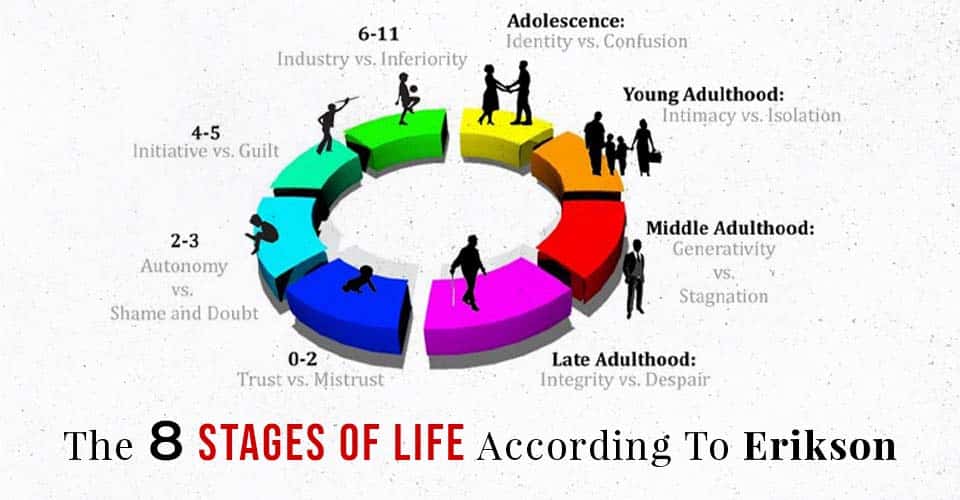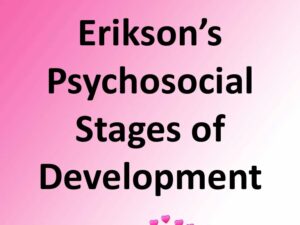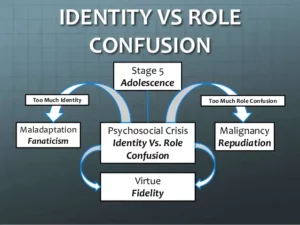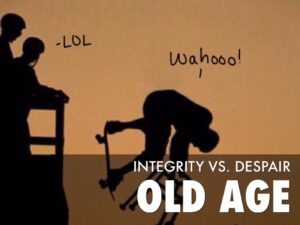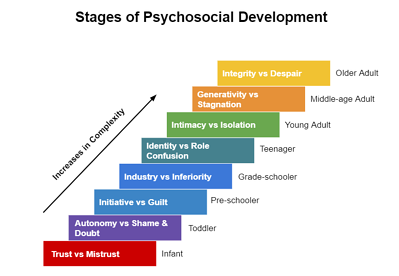Erikson’s Theory of psychosocial development is one of the most widely known theories in psychology. His developmental framework, proposed in 1959, spans the entire lifespan of an individual. There are eight stages that each person will go through during their lifetime. The first four stages are social or “interpersonal.” The last four stages are ego-centric or “intrapersonal.”
Contents
- 1 What Is Erikson’s Theory?
- 1.1 Stages Of Erikson’s Theory
- 1.2 Trust vs. Mistrust Stage
- 1.3 Autonomy vs Shame And Doubt Stage
- 1.4 Initiative vs Guilt Stage
- 1.5 Industry vs Inferiority Stage
- 1.6 Identity vs Role Confusion Stage
- 1.7 Intimacy vs isolation Stage
- 1.8 Generativity vs stagnation Stage
- 1.9 Integrity vs despair stage
- 1.10 Criticism Of Erikson’s Theory
- 1.11 How Erikson’s Theory Is Applied In Real Life?
- 1.12 Benefits Of Erikson’s Theory
- 2 Conclusion
What Is Erikson’s Theory?
Erikson’s theory of psychosocial development is one of the most renowned and extensively studied theories in psychology. The theory proposes that human beings go through eight stages of psychosocial development. Each with its own unique challenges. The theory was first proposed by Erik Erikson in 1950 and has been revised over the years.
Stages Of Erikson’s Theory
Each stage of Erikson’s theory is marked by a certain conflict that the individual must resolve. These stages are grouped into four different time periods throughout life:
- Early childhood (ages 0-18 years)
- Adolescence (19-40)
- Adulthood (41 to 60)
- Late adulthood(61+)
Early Childhood Stage
Erikson’s theory of psychosocial development in early childhood is focused on trust vs. mistrust. The child must learn to trust that the world is a safe place and that people are good. If the child does not develop this sense of trust, they may become mistrustful and suspicious of others.
Adolescence Stage
The adolescence stage is focused on autonomy vs. shame and doubt. Teenagers must learn to become independent and make their own decisions. If they are unable to do this, they may feel ashamed of themselves and doubtful of their abilities.
Adulthood Stage
The adulthood stage is focused on generativity vs stagnation. Adults should build something that will last. Whether this is a family, a work project, or something else. If they are unable to do this, they may feel stagnant and without purpose.
Late Adulthood Stage
The late adulthood stage is focused on integrity vs. despair. Older adults must accept that their life is coming to an end. They need to find a sense of meaning and purpose. If they are unable to do this, they may feel despair over their life’s accomplishments.
Trust vs. Mistrust Stage
Erikson’s psychosocial theory is a way of learning about people. The first stage in this theory is called the trust vs. mistrust stage. Kids learn that their environment is safe and trustworthy when they are in this stage. This stage occurs during the first year of life and is seen as the child’s developing trust in their caregivers. If the caregiver is loving and supportive, the child will develop a sense of trust. If the caregiver is mean or not nice, then the child will not trust anyone and will have trouble making friends later in life.
Outcomes Of Trust vs. Mistrust Stage
The outcomes of the trust vs. mistrust stage are very important for a child’s development and can affect their future relationships with others as adults. If the child feels that the people who took care of them were supportive and loving, they will be able to make trusting relationships later on. They will also be able to trust their own judgment and decisions. If a child’s caregiver is not supportive, the child may have trouble trusting other people and forming relationships as an adult. They may also doubt their own abilities and judgments.
Autonomy vs Shame And Doubt Stage
The second stage in Erikson’s theory of psychosocial development is called the autonomy vs. shame and doubt stage. Kids learn that their environment is trustworthy when they are in this stage of development, which occurs during toddlerhood. They develop a sense of independence as well as self-control over bodily functions such as toileting themselves rather than relying on caregivers for everything. If the kid experiences lots of love from his or her caregivers during this stage, they will develop a sense of autonomy. If the child experiences criticism or punishment from their caregivers, they may feel ashamed and doubtful of themselves.
Outcomes Of Autonomy vs Shame And Doubt Stage
The outcomes of the autonomy vs shame and doubt stage are important for kids as they continue to develop. If they feel loved and supported during this stage, then the child will learn how to make their own decisions as an adult without feeling too guilty about it. They will be able to trust in themselves, especially if they are criticized or shamed by others throughout life. If kids experience criticism from caregivers while trying out new things, then they may feel ashamed of themselves and doubtful about their abilities.
Initiative vs Guilt Stage
The third stage in Erikson’s theory is called the initiative vs guilt stage, which takes place during early childhood. Kids grow more curious as they explore activities that interest them outside of schoolwork or household chores. They also start to learn how to work with other children on projects. If they are able to take risks and try out new things, then their sense of initiative develops well during this stage. However, if they feel too much guilt or shame for trying something that doesn’t work out as planned, then their initiative suffers.
Outcomes Of the Initiative vs Guilt Stage
The outcomes of the initiative vs guilt stage are important for kids to understand as they get older. If a child feels guilty about trying new things and fails, then they may develop an inferiority complex (feeling like you’re not good enough) or be overly critical of themselves in future activities that require planning and coordination with others. However, if children feel too much guilt during this time period, it can severely limit their abilities later on in life because they won’t want to try out anything new and will become easily discouraged when something doesn’t go perfectly according to plan.
Industry vs Inferiority Stage
Erikson’s fourth developmental stage is called industry vs inferiority. It takes place around age six through adolescence. Kids in this stage learn how to develop their skills and talents. They also learn how to work productively towards a goal. If they are able to feel good about their abilities and see themselves as competent individuals, then their industry develops well. However, if kids feel inferior to others or doubt their own abilities, then their sense of industry suffers.
Outcomes Of Industry vs Inferiority Stage
The outcomes of the industry vs inferiority stage can have a lasting impact on children as they grow older. Those who feel confident in their abilities during this stage will likely continue striving for excellence in future endeavors. They may also be more likely to take risks and try new things without feeling too much guilt or shame if something doesn’t go as planned. However, if children feel too inferior to others or doubt their own abilities during this stage, then they may develop a fixed mindset (tendency to only see certain things in black and white) instead of exploring new opportunities outside of their comfort zone.
Identity vs Role Confusion Stage
The fifth stage in Erik Erikson’s theory is called identity vs role confusion and takes place during adolescence. This is a time when teenagers are trying to figure out who they are as individuals. They experiment with different roles and try to find their place in the world. If they are able to develop a strong sense of self-identity, then they will be less likely to experience role confusion later on in life. However, if they are unable to do this, then they may feel lost and confused about their purpose in life.
Outcomes Of Identity vs Role Confusion Stage
The outcomes of the identity vs role confusion stage can have a significant impact on children as they become adults. Those who are able to develop a strong sense of self-identity during this stage will likely be more content with who they are as individuals. They may also be less likely to experience role confusion later on in life when their career, family, and other roles change over time. However, if children are unable to figure out who they are during this stage, then they may feel lost and confused about their purpose in life as adults. This can lead to them feeling dissatisfied with themselves and their lives.
Intimacy vs isolation Stage
The sixth stage in Erik Erikson’s theory is called intimacy vs isolation and takes place during adulthood. This is a time when people start searching for meaningful relationships and want to find someone to share their lives with. If they are able to form satisfying relationships during this stage, then they will be more likely to develop a strong sense of intimacy as adults. However, if people feel isolated and alone during this time period, then it may make future adult relationships more challenging because they won’t have had much practice or experience in developing meaningful connections within the past.
Outcomes Of Intimacy vs the isolation Stage
The outcomes of the intimacy vs isolation stage can have an impact on individuals later on in life when their career changes over time and other roles take place (such as marriage). Those who successfully maintain fulfilling relationships throughout adulthood will likely enjoy stronger intimate bonds with others later on in life. They may also find themselves having less trouble adapting to changes that occur in their lives. However, those who do not have successful relationships during this stage may find themselves feeling isolated and alone as they get older. This can lead to them feeling dissatisfied with their lives and relationships.
Generativity vs stagnation Stage
The seventh stage in Erik Erikson’s theory is called generativity vs stagnation. It takes place during middle adulthood. This is a time when people are usually happy and learning well in their careers and have started families. They begin to think about ways they can contribute back to society and help the next generation thrive. If people are able to feel productive and give back during this stage, then they will likely experience generativity ( desire to leave something behind for future generations). However, if they are unable to do this, then they may feel unsatisfied with their lives and lack a sense of purpose.
Outcomes Of the Generativity vs stagnation Stage
The outcomes of the generativity vs stagnation stage can have an impact on middle-aged adults as well as future generations that will come after them. Those who successfully contribute back to society during this time period will likely experience greater feelings of self-fulfillment later on in life. They may also find themselves feeling more satisfied with what they’ve accomplished up until now. However, those who are not able to make valuable contributions during this time period may end up feeling dissatisfied or unfulfilled with their lives because of it. This can lead to them feeling unhappy about what they have been able to accomplish.
Integrity vs despair stage
The eighth and final stage in Erik Erikson’s theory is known as integrity vs despair. This occurs during older adulthood, which can begin anywhere from the late 40s through the 60s or 70s (depending on a person’s life circumstances). During this time period, people will start reflecting back onto their lives as a whole and think about how it has gone so far. If an individual has experienced feelings of integrity throughout their lifetime – meaning that they feel satisfied with who they are as a person and what they’ve done up until now – then this may result in them feeling content when looking toward the future. However, those who experience feelings of despair during this time period may feel like they have not lived up to their own expectations. This can lead them to feel regret and a lack of purpose as they move into the later stages of life.
Outcomes Of Integrity vs Despair
The outcomes of integrity vs despair can have an impact on older adults as they near the end of their lives. Those who experience feelings of integrity during this stage are likely to feel content with what they have done throughout their lives. They may also look forward to the future with anticipation, knowing that there is still more for them to experience. However, those who experience feelings of despair during this stage may feel like they have not accomplished enough or failed in some way. This can lead them to feel negative about their lives and what is yet to come.
Each stage in Erik Erikson’s theory of psychosocial development can have an impact on individuals during different points in their lives. It’s important to understand these stages so that we can better understand how our actions – both past and present – may be affecting us now and in the future.
Criticism Of Erikson’s Theory
There is criticism on Erikson’s theory, such as:
- One of the criticisms of Erik Erikson’s theory is that it doesn’t take into account race, culture, and gender.
- Additionally, his stages are not always linear, which can make them difficult to apply in practice.
- Finally, some experts argue that his theory focuses too much on pathology and less on positive aspects of development.
- Despite these criticisms, however, Erik Erikson’s theory remains one of the most popular and well-known theories of psychosocial development.
How Erikson’s Theory Is Applied In Real Life?
Erikson’s theory can be applied in real life in many ways such as:
- One way that Erik Erikson’s theory of psychosocial development is applied in real life is through counseling and therapy.
- Therapists often use this theory to help their clients. They can use it to see how their past is affecting them now.
- Additionally, educators can use this theory to help students understand more about themselves and the world around them.
- Finally, parents can also use this theory to better understand their children during different developmental stages.
- Despite its criticisms, Erik Erikson’s theory of psychosocial development remains one of the most popular and well-known theories out there.
- It provides a valuable framework for understanding how our experiences throughout our lives can affect us now and in the future. This theory is very useful in a variety of ways, including therapy, education, and parenting.
Benefits Of Erikson’s Theory
There are many benefits of Erikson’s theory, such as:
- One of the benefits of Erik Erikson’s theory is that it can be very helpful for people to understand themselves and others. This self-knowledge can benefit individuals as they go through life, helping them make better decisions about their future.
- Additionally, this knowledge may be helpful for parents who are trying to raise children in a healthy environment.
- Children and adults might not know how stages of life affect them. When we understand this better, we can see how it affects society. This will make things better when people get old too.
- Erik Erikson studied how adults change throughout their lives. He found that each stage of life has an impact on the next stage of life.
Conclusion
Erikson’s theory of psychosocial development is a comprehensive and detailed way to understand how people develop through life. This model can help you see different types of teaching methods for children. It also helps you understand your own developmental stage. And if that’s not enough – there’s also evidence that it can predict career success. Learn about yourself and others by exploring the Erikson Theory.
If you are looking for affordable Online Counseling MantraCare can help: Book a trial therapy session
